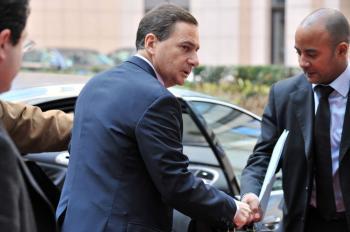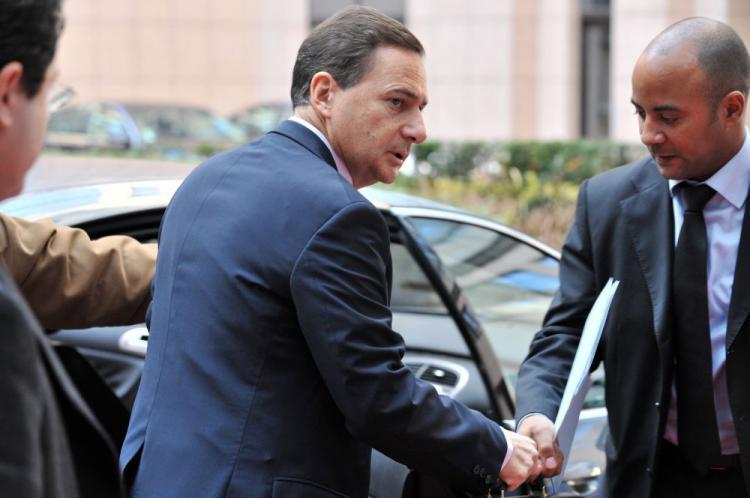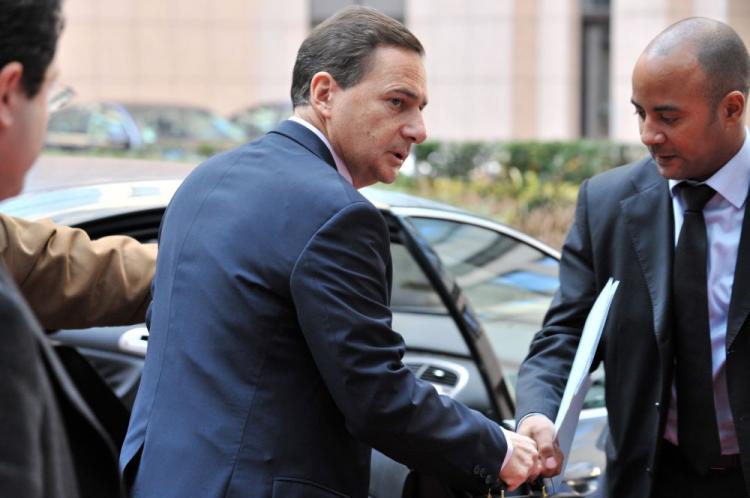PARIS—What it means to be French is officially under debate. Eric Besson, minister of Immigration and National Identity, opened the dialogue on national identity at the beginning of November, and the controversy has been getting bigger week by week.
Debate critics claim that it is an opportunistic strategy by the French presidential majority in advance of the spring regional elections since the debate is over questions of security, immigration, and national identity, cornerstones of President Sarkozy’s electoral platform.
According to polls published by Journal Du Dimanche newspaper, 72 percent of French citizen view the debate as an “electoral trick.” Nonetheless, 57 percent say that it is useful.
The French president is “insulting France by trying to oppose national identity and immigration” said Socialist Party General Secretary Martine Aubry.
On Nov. 29, on an Radio RTL political talk show, ruling Union for a Popular Movement (IMP) party chief Xavier Bertrand insisted that the debate was not merely linked to the elections, but is necessary to “to tackle real problems.”
“Be proud of what?” commented a reader of LeNouvelObs, a news Web site. “Of our country? Yes. Of our history? Yes. But can we be proud of the politicians who currently manage our country?”
Minister Besson decided to have the first public debate on national identity, on Nov. 30, in the symbolic city of Verdun in Eastern France. “It is here that, in 1916, in a battle that shook every family, our wish to belong to France was forged,” said Verdun’s mayor. Similar sessions will be held across the country and citizens can also participate via the Internet.
About 100 people participated the Verdun debate, who, according to French media, were carefully selected from among right-wing party sympathizers to discuss the themes of national values in face of conflicts, dimensions for citizenship, and national identity versus international issues.
In what the French press describes as a very flat and circumvented evening, the only loud voice was that of an Algerian, who said he had lived in France for more than 40 years and does not wish to become French if “that means becoming a second class citizen.”
“I will be happy to become a French citizen when equality will have a meaning here,” he said.
Among the concrete measures already proposed by Besson is a “republican integration contract” for all immigrants, who will have to learn French and assimilate the republic’s values. The government already made clear as well that female submission and complete coverage by the Islamic burqa, called “mobile prisons,” were not among these values.
Other measures might include the obligation for every young French citizen to at least once a year sing the national anthem “La Marseillaise.” This proposal has irritated some French citizens who do no recognize “La Marseillaise” as a fully respectable national hymn.
“Let impure blood irrigate our fields,” say the lyrics of the 18th century military song. Le Monde newspaper reminded readers that key French thinkers and humanists like Victor Hugo during the 19th century and L’Abbé Pierre during the 20th century, criticized the anthem.
“These are infamous words,” said Jean Jaures at the beginning of the 20th century, a few years before the first World War. “As when some start saying an impure blood circulates in the veins of others, there will for sure be blood, and revolutions will become butcher works.”
The national consultation will close at the end of February 2010 and then publicize its conclusions.
Debate critics claim that it is an opportunistic strategy by the French presidential majority in advance of the spring regional elections since the debate is over questions of security, immigration, and national identity, cornerstones of President Sarkozy’s electoral platform.
According to polls published by Journal Du Dimanche newspaper, 72 percent of French citizen view the debate as an “electoral trick.” Nonetheless, 57 percent say that it is useful.
The French president is “insulting France by trying to oppose national identity and immigration” said Socialist Party General Secretary Martine Aubry.
On Nov. 29, on an Radio RTL political talk show, ruling Union for a Popular Movement (IMP) party chief Xavier Bertrand insisted that the debate was not merely linked to the elections, but is necessary to “to tackle real problems.”
“Be proud of what?” commented a reader of LeNouvelObs, a news Web site. “Of our country? Yes. Of our history? Yes. But can we be proud of the politicians who currently manage our country?”
Minister Besson decided to have the first public debate on national identity, on Nov. 30, in the symbolic city of Verdun in Eastern France. “It is here that, in 1916, in a battle that shook every family, our wish to belong to France was forged,” said Verdun’s mayor. Similar sessions will be held across the country and citizens can also participate via the Internet.
About 100 people participated the Verdun debate, who, according to French media, were carefully selected from among right-wing party sympathizers to discuss the themes of national values in face of conflicts, dimensions for citizenship, and national identity versus international issues.
In what the French press describes as a very flat and circumvented evening, the only loud voice was that of an Algerian, who said he had lived in France for more than 40 years and does not wish to become French if “that means becoming a second class citizen.”
“I will be happy to become a French citizen when equality will have a meaning here,” he said.
Among the concrete measures already proposed by Besson is a “republican integration contract” for all immigrants, who will have to learn French and assimilate the republic’s values. The government already made clear as well that female submission and complete coverage by the Islamic burqa, called “mobile prisons,” were not among these values.
Other measures might include the obligation for every young French citizen to at least once a year sing the national anthem “La Marseillaise.” This proposal has irritated some French citizens who do no recognize “La Marseillaise” as a fully respectable national hymn.
“Let impure blood irrigate our fields,” say the lyrics of the 18th century military song. Le Monde newspaper reminded readers that key French thinkers and humanists like Victor Hugo during the 19th century and L’Abbé Pierre during the 20th century, criticized the anthem.
“These are infamous words,” said Jean Jaures at the beginning of the 20th century, a few years before the first World War. “As when some start saying an impure blood circulates in the veins of others, there will for sure be blood, and revolutions will become butcher works.”
The national consultation will close at the end of February 2010 and then publicize its conclusions.







